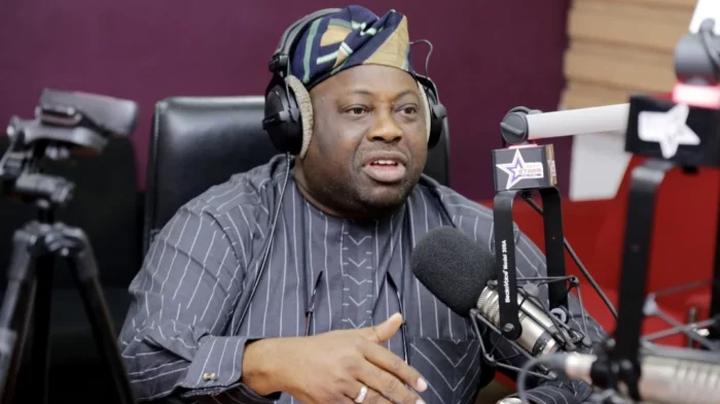According to Daily Trust, A former presidential candidate and a prominent figure within the Peoples Democratic Party, Dele Momodu, has raised concerns over the current state of the country, stating that Nigerians are still experiencing hardship under the administration of President Bola Ahmed Tinubu. His remarks focused on the daily realities facing citizens despite visible political movements that suggest progress. Momodu, a known media personality and publisher, made these comments during a televised programme that featured a discussion on current national affairs, shedding light on the perceived disconnect between political optics and citizens’ real-life struggles.
Momodu’s observations have reignited conversations among political stakeholders and the public about the depth of Nigeria’s socioeconomic conditions more than a year into President Tinubu’s administration. In highlighting the persistence of hardship, he indicated that the mass defections of political figures to the ruling party might be painting a misleading image of national stability and progress. According to him, this shift in political allegiance could be interpreted as a sign of widespread support for the government, when in fact, many Nigerians continue to grapple with rising living costs, limited access to public services, and general economic uncertainty.
The former presidential candidate expressed skepticism over whether President Tinubu is fully informed about the realities on the ground. He implied that the president might be misled by the wave of defections and endorsements that appear to validate his leadership. These developments, though politically advantageous, may not reflect genuine approval from the broader population. Instead, they could represent strategic alignments driven by political self-interest rather than public welfare. This disconnect raises questions about how political signals are interpreted within the corridors of power and whether they align with the day-to-day experiences of ordinary Nigerians.
In the months following President Tinubu’s assumption of office, there has been growing public discourse around inflation, naira depreciation, fuel subsidy removal, and the ripple effects these have had on household incomes. Many citizens have expressed frustration over what they perceive as a slow or insufficient governmental response to economic challenges. Small business owners, wage earners, and vulnerable populations have all felt the pressure of a strained economy. In this context, Momodu’s remarks add to a broader narrative that suggests that positive political developments, such as defections or alliances, may not equate to improved conditions for the average citizen.
Throughout the interview, Momodu underscored the importance of leadership that remains in touch with the people’s struggles rather than relying solely on political endorsements or party realignments as metrics for success. His stance reflects a growing concern that the ruling elite may be focusing on political consolidation at the expense of addressing urgent socioeconomic issues. The message he conveyed is one that calls for a more grounded and reality-based approach to governance—one that considers the voices of ordinary citizens beyond the political class. The idea is that popular hardship should not be overshadowed by a facade of political strength.
The defection of governors and other influential political figures to the ruling party has been one of the most visible developments in the current political cycle. These movements are often interpreted as signs of strength and stability within the government, but critics argue that they should not be mistaken for indicators of public satisfaction. Momodu’s commentary challenges this narrative by emphasizing that political maneuvers do not necessarily translate to improvements in governance or living conditions. His perspective invites both political leaders and the public to scrutinize the tangible outcomes of such developments, rather than accepting them at face value.
Furthermore, the situation has prompted analysts to evaluate whether the government has implemented enough policy reforms to ease the burden on citizens. While some measures have been introduced, concerns remain about their effectiveness and sustainability. Many Nigerians are still grappling with high prices of basic commodities, limited electricity supply, and inadequate access to healthcare and education. These challenges have persisted despite the seeming political momentum in favour of the current administration. Momodu’s intervention, therefore, brings to the fore the need for a more comprehensive and inclusive governance strategy that goes beyond winning political battles.
He said: “So I am not sure that the president actually knows what is going on because if you see all the governors decamping to your party, won’t you think you are the greatest thing that happened to Nigeria?
Find Verified News At Your fingertips Click The Button Below

